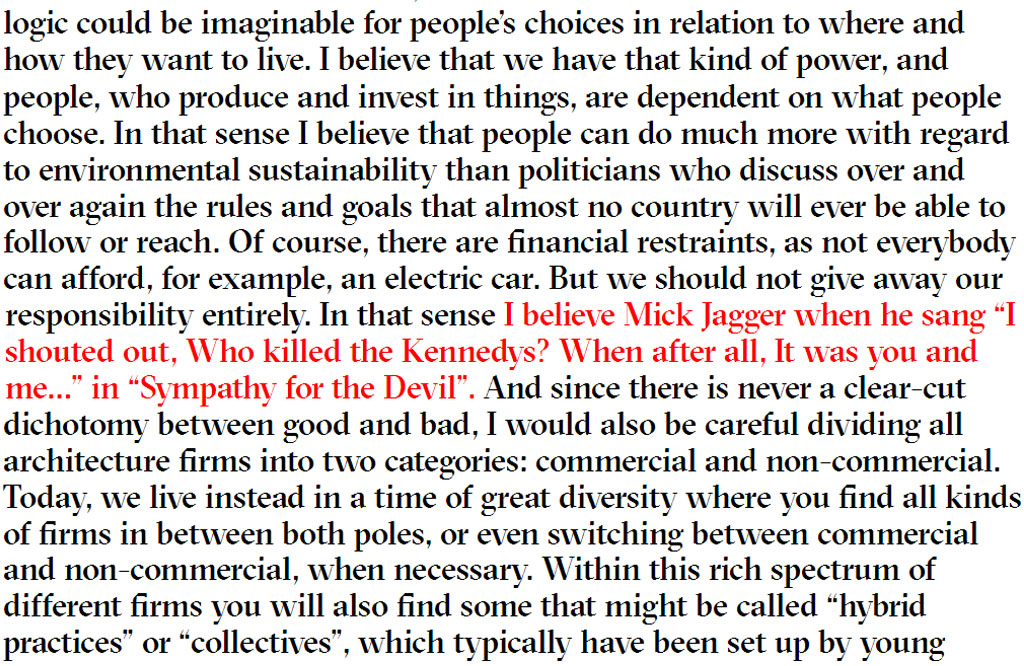14-03-16 // AFTER ALL IT WAS YOU AND ME – INTERVIEW WITH BERND UPMEYER

Bernd Upmeyer has been interviewed by the Milan-based research collective Parasite 2.0 as part of the program “Aformal Academy – RE: Learning The City” curated by Jason Hilgefort and Merve Bedir for the Hong Kong-Shenzhen Bi-City Biennale of Urbanism\Architecture (2015 UABB).
[…]
Parasite 2.0: Our statement says that “it is necessary to be aware of the failure of an idea of progress and of an anthropization strategy that is no longer sustainable. Today, we can strongly perceive the change of the practice. On the one hand architectural firms continue with work that is strictly connected to the neoliberal global market. On the other hand, hybrid practices – in the form of collectives – develop their work breaking down the disciplinary borders to get in touch with other cultural fields.” With MONU you have had the possibility to work with, and be confronted by, many professionals. Could you please comment in this excerpt on this experience?
Bernd Upmeyer: I agree that it is important to be aware of failures in architecture and urbanism, because if we stop seeing mistakes and problems, we will never be able to improve our cities and our living conditions. […] But we should not give away our responsibility entirely. In that sense I believe Mick Jagger when he sang “I shouted out, Who killed the Kennedys? When after all, It was you and me…” in “Sympathy for the Devil”. And since there is never a clear-cut dichotomy between good and bad, I would also be careful dividing all architecture firms into two categories: commercial and non-commercial. Today, we live instead in a time of great diversity where you find all kinds of firms in between both poles, or even switching between commercial and non-commercial, when necessary. […]
P2.0: We believe it is fundamental to retake an ethical and political position from the architect’s (or designer’s) perspective.
BU: What counts at the end of the day is the quality of the outcome of the architectural and urban design projects to improve the way we live in cities. But I would not agree to giving all power to the architects or designers – which, luckily, would not be possible anyway – because I think it is wrong to believe that architects constitute some kind of homogeneous well-meaning entity that can and wants to do the right thing at all times, always. […]
Read the entire interview here.